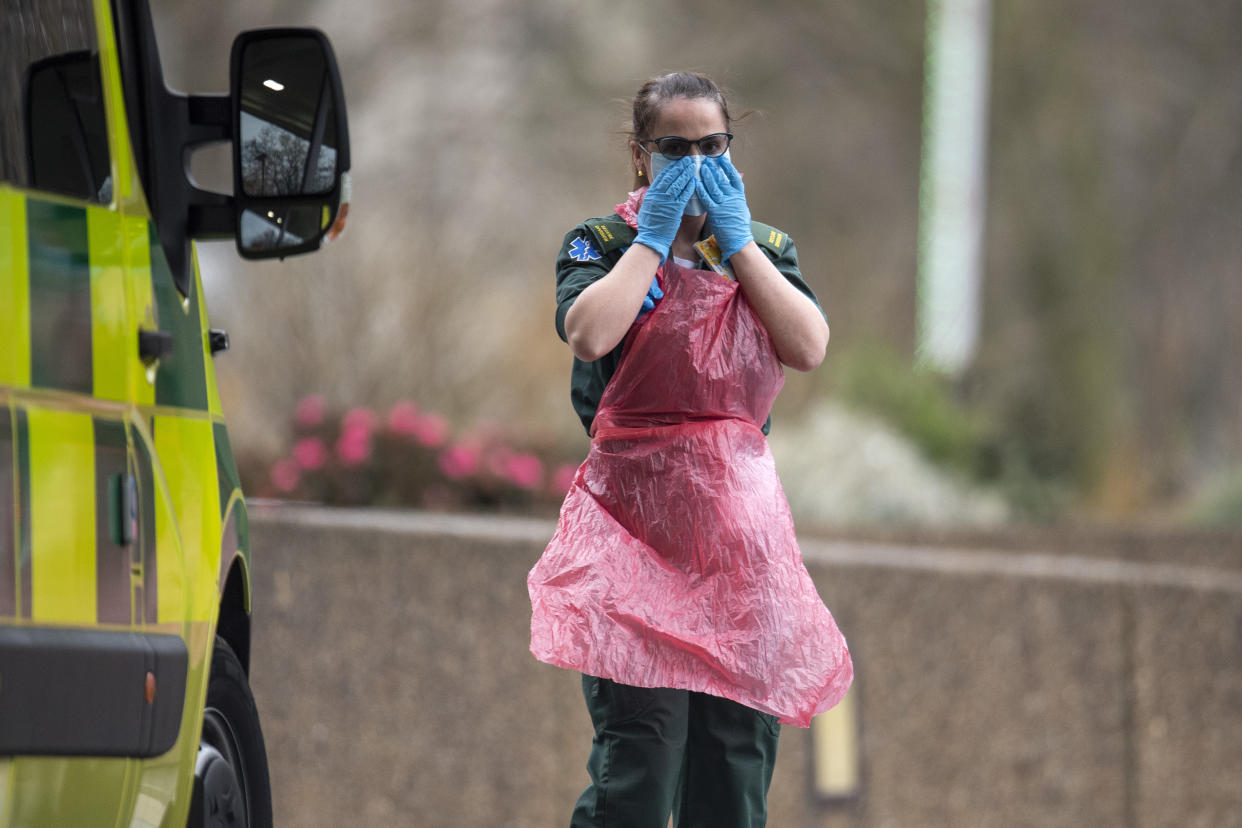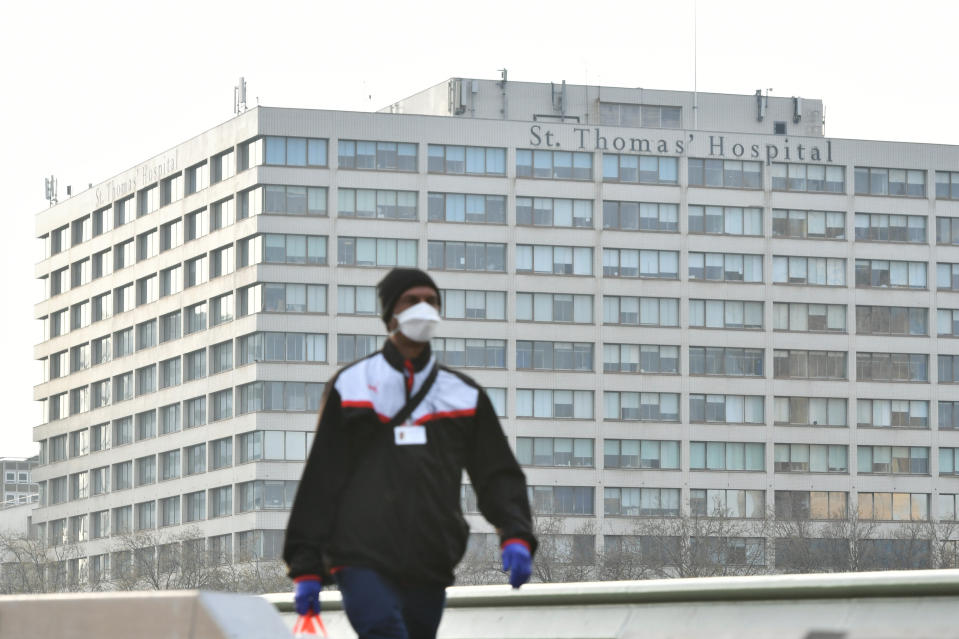Coronavirus: Exposure to higher 'viral load' when infected could make victims more severely ill

Exposure to a higher “viral load” of coronavirus could make victims more severely ill, a government adviser has warned.
Professor Lucy Yardley, who is part of the Scientific Advisory Group for Emergencies (Sage), said the amount of COVID-19 virus a person came in contact with could make a difference.
She explained this was the reason many health workers had become ill because they were exposed to a higher dose of the virus while taking care of sick people.
Prof Yardley, from the University of Bristol, urged the government to take this into consideration when creating the lockdown exit strategy.
Read more: The high-profile names who have been accused of breaching lockdown rules

Prof Yardley, who specialises in health psychology, told the BBC Radio 4 Today programme on Wednesday morning: “‘People actually worry, possibly too much, about passing somebody on the street without a mask [but] unless they cough in your face, which would be dangerous, that's probably not very risky.
“Whereas, having to spend a considerable amount of time close by to someone, that is a particularly risky situation.”
Prof Yardley was one of the experts who contributed to a paper released on Wednesday that argued “since most people with COVID-19 are cared for at home, it may be important to try to protect the people caring for them by limiting how much virus they come in contact with.”
Latest coronavirus news, updates and advice
Live: Follow all the latest updates from the UK and around the world
Fact-checker: The number of COVID-19 cases in your local area
6 charts and maps that explain how COVID-19 is spreading
The paper, published in the BMJ, said: “Most people with COVID-19 are cared for at home, increasing the likely exposure of household members.
“Although the evidence is limited, high infection rates among health workers have been attributed to more frequent contact with infected patients, and higher viral load —the size of the infecting dose of virus.
The report added: “Providing them with the same level of PPE as in hospitals is not practicable, but promotion of simple evidence-based interventions may lower the risk of infection transmission and help reduce morbidity and demand on hospitals.”
The report said the medical community was reluctant to make recommendations in the absence of evidence but an expert team that reviewed the evidence felt the viral load argument was strong.
The viral load is only one aspect of what can cause a negative reaction to COVID-19.
An article written by academics and researchers on the Conversation website states: “How the body responds to the virus can also be critical.
“This is because the immune response to a virus can be both beneficial and harmful.
“If the immune system isn’t adequately activated, the virus can replicate faster.
“On the other hand, if the immune system is over-activated, it can damage healthy tissues.”
Read more: Dutch restaurant trials glass cabins for diners to keep distance after lockdown
It added health workers may be more vulnerable to becoming seriously ill from COVID-19 because their immune systems were not optimal due to the long hours they worked.
The team which released the paper are making the ‘Germ Defence’ app freely available.
The app aids with infection control in the home by using behaviour change techniques to help people put public health advice into practice.
Coronavirus: what happened today?
Click here to sign up to the latest news, advice and information with our daily Catch-up newsletter

 Yahoo News
Yahoo News 

